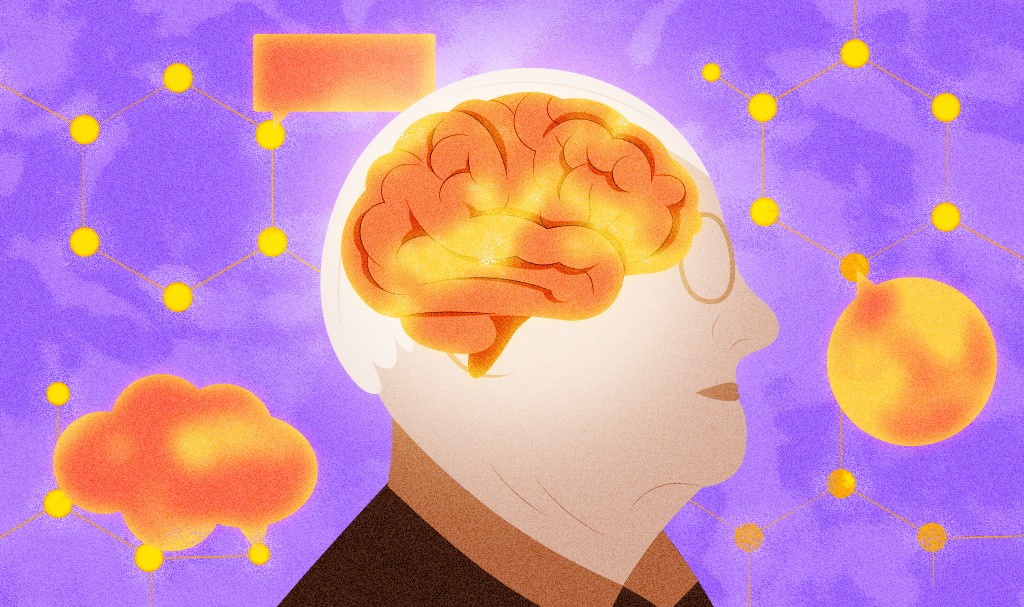[ad_1]

AsianScientist (Apr. 11, 2024) – Previous research on kids and younger adults have proven that being bilingual can increase cognitive reserve and improve psychological flexibility, consideration management and dealing reminiscence (also called concept of thoughts)—important for understanding different individuals’s habits. Researchers from the Singapore College of Expertise and Design (SUTD) and their collaborators from the Nationwide College of Singapore (NUS) had been curious to know if this social cognitive enhancement persists in later life.
To reply this query, they carried out a examine involving 96 younger and older adults and located that early bilingualism might shield the speculation of thoughts skills in opposition to anticipated age-related declines. The examine was printed in Scientific Stories.
As individuals age, modifications happen in each the physique and the mind. Particular mind areas shrink, and communication between neurons turns into much less efficient. “Such structural and purposeful modifications end in an age-related decline in cognitive perform, affecting language, processing velocity, reminiscence, and planning skills,” mentioned Yow Wei Quin, Professor on the Singapore College of Expertise and Design (SUTD).
Cognitive reserve is the mind’s approach of adjusting and compensating for any decline or hurt it faces. It lets an individual discover different methods and mind areas to perform duties. Cognitive reserve is tied to its neural basis, mind reserve, which entails having good mind options like an even bigger mind and extra connections between neurons. Yow added, “These reserves spotlight the mind’s flexibility and resilience. A person with higher reserves is more likely to preserve good cognitive perform in getting older.”
For the examine, the researchers recruited 46 younger adults and 50 older adults, all residents of Singapore. The younger adults had been primarily college college students, whereas the older adults lived in the neighborhood and had been recruited by means of posters, social media, or word-of-mouth.
The individuals had been right-handed, had regular or corrected imaginative and prescient, regular colour imaginative and prescient, no historical past of neurological or psychiatric circumstances, and had at the very least three years of training. Older adults had been additionally checked for cognitive decline. Most younger adults accomplished pre-university training, whereas older adults had numerous academic backgrounds.
All individuals had been bilingual or multilingual, talking English and Mandarin, with some understanding further languages. Younger adults who participated within the examine typically realized their second language sooner than older adults.
To manage the examine, every individual attended two periods: one for exams and one other for MRI scans. Through the check session, older individuals took a reminiscence check and 4 different exams about considering and language. Then, all of the individuals, younger and older adults, accomplished duties to know individuals’s ideas and a language questionnaire.
Through the MRI session, individuals accomplished duties whereas being scanned. Some duties concerned displaying them issues to see how they reacted emotionally. This examine examined solely the mind’s construction as a result of formative years experiences normally affect the mind’s reserves. To examine how properly individuals understood others’ ideas, they accomplished 15 questions inside 9 duties referred to as the Concept of Thoughts Activity Battery. Moreover, they accomplished a language background type and different exams to evaluate their considering abilities.
Mind photographs (MRI) had been taken utilizing a particular scanner, and a program referred to as FreeSurfer 6.0 helped analyze them. This system examined completely different mind components primarily based on dimension and form to find out their well being. Researchers discovered that studying a second language early and having higher social cognitive abilities had been linked to modifications in mind construction, together with elevated grey matter quantity and cortical thickness in younger and outdated adults. Studying a second language earlier appeared to have led to those mind modifications, which may assist shield social and cognitive skills as individuals age.
These social cognitive abilities are important, particularly in understanding others’ ideas and feelings. The examine means that bilingualism goes past simply language abilities and helps preserve social cognition as individuals age, selling more healthy getting older.
“Our findings spotlight the potential social-cognitive advantages related to buying a second language early in life,” mentioned Dr Li Xiaoqian, co-first creator of the paper from SUTD.
The examine’s findings additionally encourage mother and father and educators to encourage early bilingual training and lifelong bilingualism. Bilingualism can enrich and protect social cognitive perform, permitting individuals to take part in actions they take pleasure in, preserve relationships, and reduce the necessity for care in later life.
Whereas age-related neurocognitive decline is pure and sometimes manageable, delaying the method is crucial to enabling people to dwell independently longer. This examine is a component of a bigger venture analyzing age-related psychological and neurological modifications in social cognition.
The staff additionally collected Useful magnetic resonance imaging (fMRI) knowledge on individuals performing social-cognitive duties. fMRI is a way that detects slight alterations in blood circulate throughout mind exercise. It helps analyze the mind areas concerned in essential capabilities, assess the affect of stroke or different illnesses, and direct mind remedy. In future, the researchers plan to investigate the behavioral and neuroimaging knowledge to find out how bilingualism impacts social cognition.
—
[ad_2]
Source link

